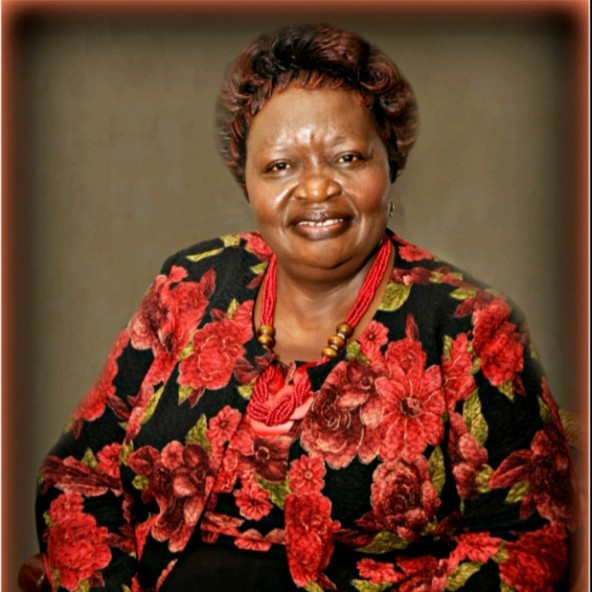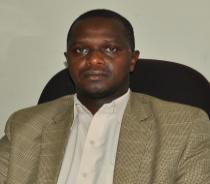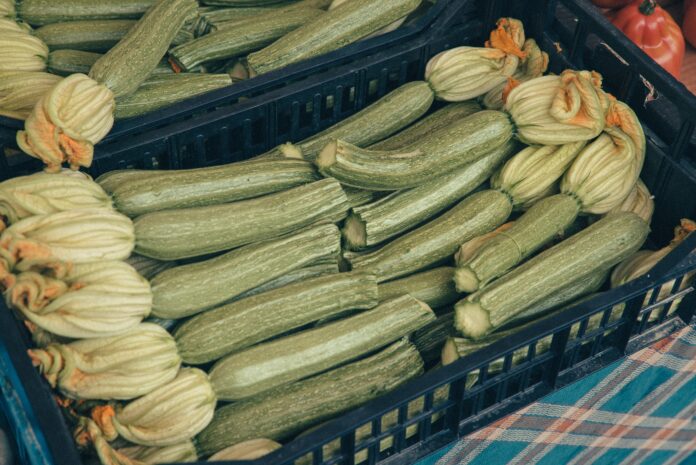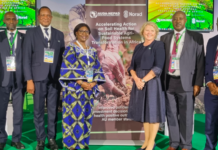By Omboki Monayo
Nairobi, Kenya: A lively national debate between proponents and opponents of genetic engineering is underway in Kenya after the October 3, 2022 cabinet decision to rescind the 2012 ban on GM crops.
The Media for Environment, Science, Health, and Agriculture (MESHA) played host to a panel of scientists from both sides of the divide in a cafe on October 4, 2022.
According to MESHA chief executive officer Aghan Dan, the cafe was held to provide journalists, advocates on either side of the GM debate, and stakeholders with clear perspectives on the opportunities and challenges posed by the cabinet decision to rescind the ban.
He cautioned journalists against taking sides in the debate, saying it would only serve to deepen the divisions between GM supporters and critics instead of giving the public the required facts.
“Journalists are not supposed to take sides in the debate but bring out the issues posed by the opposite sides so as to enrich the public with accurate and well-balanced knowledge to enable them to make informed decisions on whether to adopt or reject the technology and its products,” said Mr. Dan.
He reminded participants that while Ghana is the first in Africa to release a GM food crop, cassava, South Africa and Kenya are among those that first released University of Nairobi, which is a non-food item.
Dr. Sarah Olembo said the decision was taken in haste, and in violation of the Catargena Protocols that require buffer zones between GM and natural zones.

The Cartagena Protocol on Biosafety to the Convention on Biological Diversity is an international agreement that aims to ensure the safe handling, transport, and use of living-modified organisms (LMOs) resulting from modern biotechnology that may have adverse effects on biological diversity, taking also into account risks to human health.
It was signed by 103 countries in 2000 and came into effect n September 2003.
“The Cartagena Protocols would have defined ones of engagement with GM crops in specific zones while creating buffer zones between them and other natural zones. This has not yet been done in Kenya,” said Dr. Olembo.
She clarified that phytosanitary standards that regulate the movement of plant and seen materials had not been fine-tuned to accommodate the changes.
“Phytosanitary standards are different from pest and disease control measures put in place for crops grown in the farms or for research in controlled environments,” the researcher said.
“These standards refer to the measures put in place to monitor and regulate the movement of materials that will be used to plant crops including seeds. They help prevent the movement of pests and diseases from country to country, which can cause ecological disruptions and other disasters,” she added.
She said the ban would have an impact on Kenya’s neighbours as it has now heightened the possibility of GM seeds and other planting materials crossing their borders.
“With the GM ban lifted, the other neighbouring countries might as well allow the free movement of GM crops and related materials.
She also warned that the capacity of communities to maintain stocks of indigenous seed varieties would be compromised by the ban.
Dr. Olembo said the survival of communities during the pandemic was largely due to the fact that they had their own seed supply.
“Lifting the ban will jeopardize the seed sovereignty, human rights, and the ancient and time-honored tradition of women as the community custodians of seed.
She said it was this custodianship that secured the country’s seed stocks during the pandemic.
“How were we able to feed during the pandemic? Because the women kept the seeds and were able to plant despite the lack of seeds due to the seed companies that shut down due to health and safety concerns,” she said.
Seed expert and organic farming advocate Dr. Daniel Maingi said the entry of GM crops would herald a new era of local seed colonization or market domination by the agrochemical giants.
“Seed colonization will strip communities of the ability to independently produce food, make them GM seed dependent, and threaten food security,” Mr. Maingi said.
He added that the introduction of GM food crops means that women who store seeds for planting will no longer be able to afford the seed varieties that can cost between 10-15m each.
“The proposed punitive measures of 10 or 6 months jail term for those found planting unauthorized GM varieties will also discourage many from the uptake of the new varieties,” Mr. Maingi said.
He lamented what he called Africa’s disappointing move to adapt technology that the West was slowly abandoning.
“It is sad to see that we are going for industrial food which is tasteless and requires lots of pesticides. This type of food, which Europe is abandoning in favor of the organic crops we grow here in Africa, is also mostly tasteless,” he said.
Prof Douglas Miano, who lectures at the University of Nairobi, said the GM crops decision was not a blank cheque for the uncontrolled planting of genetically engineered varieties of crops.
He stressed that the GM crop introduction would be on a case-by-case basis, and not a haphazard process that would take without the required safeguards
“The lifting of the ban is not a free for all kind of declaration. The National Biosafety Act and the National Biosafety Authority are still operational,” the lecturer and researcher who is the Associate Professor at the university’s Department of Plant Science and Crop Protection, Faculty of Agriculture told Talk Africa.

“We have the laid down laws and regulations governing the development, assessment, release, and follow-up of GM crops and these have clearly not been done away with. They will still be followed,” he said.
Prof Miano said the ban had relegated scientific research on GM crops to the periphery.
“Our work was previously disappearing into a dark hole due to government policy that had outlawed the development and application of imported food that was grown using GM technology.
“Now we are free to pursue our research knowing that it can be applied once the approvals are sought from the required regulatory agencies and secured,” he said.
Prof Justus Onguso of the Jomo Kenyatta University of Agriculture and Technology (JKUAT) said the dark cloud of discouragement that had long hung over the biotechnology sub-sector was now gone with the ban.
“For almost a decade, students were disillusioned with the idea of pursuing genetic engineering because of the ban. Now, those who had given up on biotech are calling us because they are interested in re-enrolling so that they can apply what they have learned in developing solutions for the local market,” Prof. Onguso said.
He clarified that the ban targeted the import of GM food but did not outlaw research. The academic however confirmed that the negative publicity around GM technology had driven the scientists in the field out of the spotlight.
“We were doing some projects in secret but now we can share the findings for the benefit of Kenyans and the world at large,”Prof Onguso said.
He hailed the technology as a welcome boost to research in the country.
“GM crops will create employment in the industry and help produce more food for the country’s population, also solve the problem of perennial food shortages,” said the academic.
“The ban’s lifting provides a massive opportunity for us to develop solutions tailored for the Kenyan market all the way from concept, development, performance testing, approval, release and post-release surveillance and follow up,” he added.
Among the ongoing research projects is a vaccine that can be eaten as a banana.
“An edible banana vaccine is coming, for those people who do not find the idea of an injection appealing or palatable. It will be easier to dispense vaccines to children through such an innovation for example,” he said.
Prof Joel Onyango of the University of Nairobi urged Kenyans to acknowledge and appreciate the capacity of local scientists to develop appropriate varieties for crop cultivation.
“Not everything must come from the West for us to see it as good or high quality. Let us learn to appreciate and respect the education and scientific talent or capacity in our midst,” said Prof Onyango.
He admitted that the technology was not the only solution to the food security challenge, but was optimistic it would be a welcome addition to existing options.
“We do not need to see GM as a threat. It is also not a panacea to all our pressing food security challenges. But if it has been proven to work elsewhere, it will work here given the opportunity and following the laid down regulations, said the scientist.
“The National Biosafety Authority (NBA) will not license any GM crop or tech if the same is unsafe. It has been mandated to monitor the tech’s use and carry out comprehensive surveillance of such varieties’ release and cultivation.
Referring to claims by activists that previous research had shown that GM crops were carcinogenic, Prof Onyango said the research findings had been retracted.
In September 2012 the scientific Journal Food & Chemical Toxicology published a study that suggested a higher risk of developing tumors and cancer for people who consume the NK603 maize variety which is genetically modified corn resistant to the herbicide Roundup.
“The controversial report done in 2009 was retracted and republished in PLOS One as it was based on inconclusive data. The tumors were later found to have developed as a result of other compounds in the environment, possibly including Roundup. They were not caused by the maize,” Prof Onyango said.
In the republished version, the authors admitted that their initial findings had been based on vague and unreliable data.
Kenya produces 2.4 million metric tons of cereal, against a demand for 4.2 million metric tons.
According to Prof Onyango, the gap means that the country is forced to import to plug the 1.8m metric ton shortfall.
“GM could help us significantly boost our production and feed our people without having to import such a large amount of cereal,” he said.
Prof Onyango asked the public to embrace the technology, saying it was an accepted and credible method to boost the production of food crops.
“GM is just but one of the many existing tools to improve yields. Other examples include irrigation and hybrid seeds. If the others have been proven to work, so can GM,” he said.
Dr. Murenga Mwimali, who is the Principal Research Scientist and Maize Breeder at the Kenya Agricultural and Livestock Research Organisation (KALRO), said GM technology had provided a way out of the country’s pressing perennial food shortage crisis by providing a platform to undertake product development through engineering.
“The current challenge we face is that must find solutions to the problems we face. We have to apply new thinking to solve them. We cannot be thinking in new ways but living and acting in the old ways,” he said.














